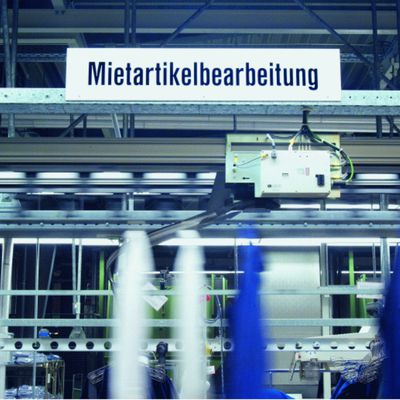
ETSA News
The latest ETSA headlines
ETSA addresses challenges in EN 17116 standard in new position paper
ETSA has released the following position paper (attached at the bottom of this page) addressing the EN 17116 standard, which was developed for testing the capacity and consumption characteristics of industrial laundry machines. Our position paper emphasizes the unique challenges of applying this standard to industrial machines and advocates for maintaining its voluntary nature, especially concerning energy labelling requirements. A special acknowledgment goes to the ETSA Machinery Task Force, led by Richard Newton, for their diligent efforts in bringing clarity to this complex issue and in drafting this comprehensive position paper.
 Originally developed under the EU Eco-Design Directive, the EN 17116 standard specifies requirements for a range of professional laundry equipment, such as tumble dryers, washer extractors, and continuous tunnel washers. However, because industrial washing machines are large-scale, custom-built systems made to satisfy the unique requirements of various textile service firms, they are very different from their home and commercial counterparts. The study emphasizes that because of various textile types, distinct processing settings, and varying infrastructural conditions, these machines cannot be adequately examined using standardized methods.
Originally developed under the EU Eco-Design Directive, the EN 17116 standard specifies requirements for a range of professional laundry equipment, such as tumble dryers, washer extractors, and continuous tunnel washers. However, because industrial washing machines are large-scale, custom-built systems made to satisfy the unique requirements of various textile service firms, they are very different from their home and commercial counterparts. The study emphasizes that because of various textile types, distinct processing settings, and varying infrastructural conditions, these machines cannot be adequately examined using standardized methods.
The ETSA position paper explains in detail why it is not feasible to require industrial laundry machines to be tested and labelled. It notes that standard performance testing is not practicable due to the variety in textiles, operational procedures, and site-specific variables. Furthermore, the infrastructure required to test such big and complicated devices is frequently unavailable, which makes compliance unnecessarily expensive and disruptive, especially for SMEs. The assignment of standardized labels is made more difficult by the report's emphasis on the crucial role that chemical suppliers and end users play in determining energy efficiency.
In this position paper, ETSA calls for a pragmatic approach that takes into account the reality of the textile service sector while reaffirming the textile services industry's dedication to energy conservation. ETSA hopes to promote efficiency and creativity by supporting the voluntary implementation of EN 17116 without placing an excessive burden on operators and producers. The industry's message is clear because of the ETSA Machinery Task Force and Richard Newton's leadership: a one-size-fits-all strategy is not practical for these specialized and necessary machinery.
ETSA Posistion Paper on the subject is linked here
ETSA: Representing textile rental companies
To find out more about our members including suppliers, national associations and research institutes click here.
ETSA: In partnership with suppliers of detergents, fabrics and machinery
To find out more about our members including textile rental companies, national associations and research institutes click here.
ETSA: Coordinating national textile service associations and working with research institutes
To find out more about our members including textile rental companies and suppliers, click here.







































